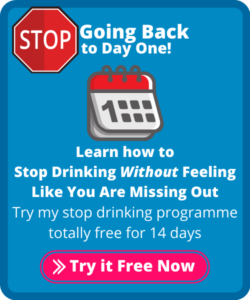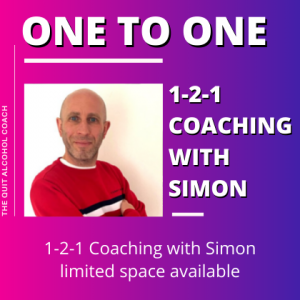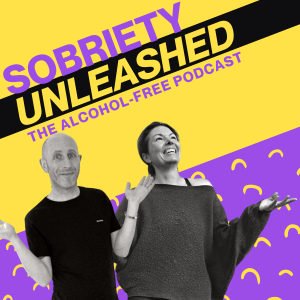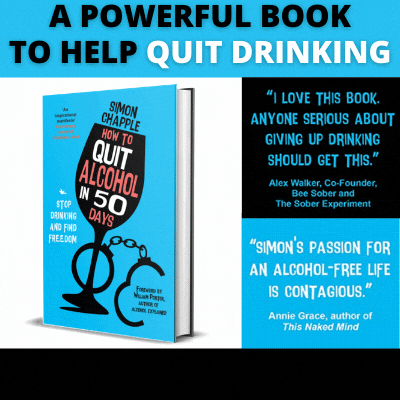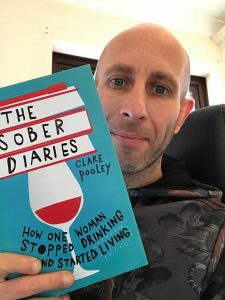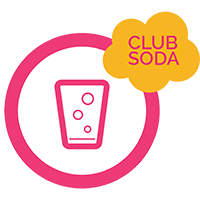Sober Survival Series – How to NOT sabotage your sobriety journey

Whether you have never tried going alcohol-free since you first started drinking booze, or you have tried to quit before but not been able to remain sober, this blog post is for you. If there was a qualification handed out for making sobriety harder, then I would have certainly been awarded that at the start of my journey. I didn’t know it at the time, but looking back there were certain things I was doing that were not helping, they were in fact sabotaging my alcohol-free life choice. I am really proud of the fact that this year marks 3 years of my soberversary. However, hindsight is wonderful thing and as such, I wanted to share with you some things that I have done which actually made things harder at the time, I want to help you so you don’t fall into the same trap.
#1 Setting an unrealistic goal
I remember when I first decided to change my life forever and stop drinking, at the start I was thinking this is forever! Whilst there is certainly a strong merit to this view point and you need to be committed to making a positive life change, if the goal is too big to comprehend in your mind, then you are far more likely to not be able to keep to that promise to yourself.
I had been drinking alcohol for over two decades. Alcohol was a massive part of my life and whilst at the start I was so excited and keen to be alcohol-free forever, at times forever felt like an impossibility. It was too much to comprehend that I would NEVER drink again and the thought itself would often cause me to think about drinking, all because I couldn’t accept it. Looking back, what I should have done from the very start was set smaller achievable goals where I had no-alcohol based rewards in place. For example, trying not drinking for a day, then 3 days, then a week, then a couple of weeks, then a month and so on. Whilst I was lucky to not have relapsed, I can certainly see why setting too big of a goal from the outset can hinder and not help sobriety.
#2 Not keeping triggers in check
I wasn’t aware until stopping drinking just how my triggers were responsible for me opening that first, second or third bottle of wine. Looking back now, it was obvious to me that having certain friends or family over was a massive trigger, along with cooking the evening meal and even just sitting down to watch a bit of telly in the evening. In the past none of those things were done without a glass of wine in my hand. What I should have done from the outset was to properly ask myself, when and why do I drink the most often and to make my life as easy as possible with sobriety from the start, put measures in place to avoid, restrict or divert from those triggers. For example, cooking a family meal could not be done without opening a bottle of wine. Instead, making sure I had an alcohol-free alternative that I enjoy, meant I could still continue to enjoy cooking but also not have the same urge to drink wine. If there are particular people in your social network that you know you will end up drinking alcohol with, then perhaps restrict time with them for now until you have your sobriety under full control. Not keeping triggers in check is a sure-fire way of relapsing to old habits that you want to change.
#3 Being too hard on yourself
If you are like me, then when you commit to anything, you put everything into it. However, a result of this is that you can be too hard on yourself when things don’t go as planned or don’t go as you would want them to. Whilst being determined and doing things properly are great traits to have, if you are too hard on yourself when making a drastic positive change to your life, such as going alcohol-free, then it can have a negative impact. It may be particularly hard to comprehend now, but set-backs can and most likely will happen. Whether this is short-term negative mood and thought processes or full-on relapses. You need to remember that if you were to relapse, then this does not mean that you have failed at all. You need to adopt a mindset of being able to learn and move forward. If a relapse occurs then accept it. Understand why you relapsed and set yourself back on track and focused on the bigger goal of having an alcohol-free life. It won’t be a straight-forward line of progress and being too hard on yourself and beating yourself up over things that don’t go to plan will only encourage you to stop trying to change your life for the better.
#4 Refusing help
There can be a tendency when starting something new to either think you have it all set out how you plan to become alcohol-free, or you just don’t feel you can ask others for help. This is a grave error with sobriety. The sober movement and sober community as a whole are far reaching and there are so many resources out there and people that can and want to help. You don’t have to face sobriety on your own and the saying ‘problem shared is a problem halved’ could not be truer. Don’t shy away from seeking help from others whenever you need it to get you to where you want your life to be.
I hope the above helps you when it comes to avoiding sabotaging your sobriety journey. I would also love to hear from you about your journey so far. Have you found that certain things have either helped or hindered your progress so far? Please do leave a comment so we can all learn and thrive together!
View this post on Instagram

